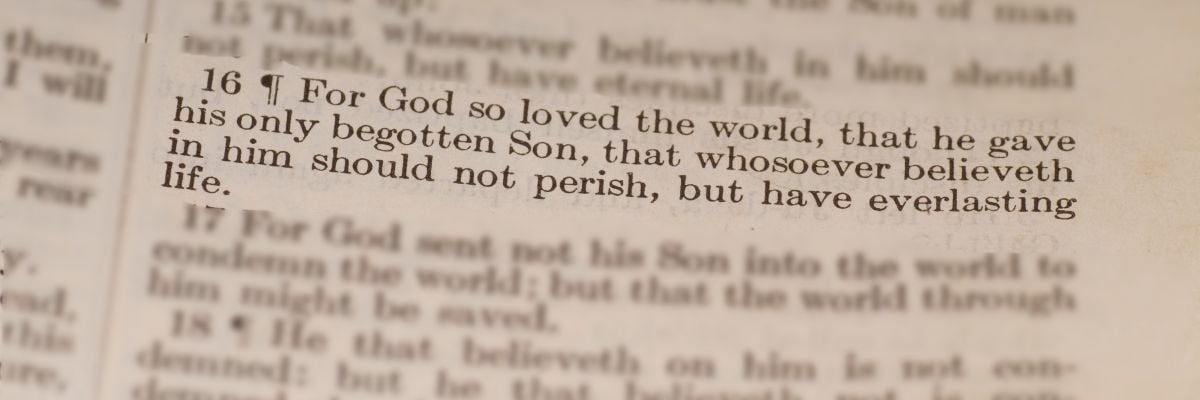
Question:
Answer:
First of all, the Catholic view of salvation is not faith plus works, if by works you mean purely human efforts to win God’s favor.
Catholics believe in salvation by grace alone, yet grace must not be resisted, either before justification (by remaining in unbelief) or after (by engaging in serious sin). Read carefully 1 Corinthians 6, Galatians 5, and Ephesians 5.
Second, the Bible nowhere uses the expressions “justification by faith alone” or “salvation by faith alone.” The first was directly the invention of Luther; the second his by implication. Luther inserted “alone” into the German translation of Romans 3:28 to give credence to his new doctrine.
But your question deals with John 3:16. Yes, this passage does speak of the saving power of faith, but in no sense does it diminish the role of obedience to Christ in the process of getting to heaven.
In fact, it assumes it. Just as Fundamentalists overlook the rest of the chapter in connection with what being born of water and the Holy Spirit really means—they ignore the water part, which refers to baptism—they also overlook the context when interpreting Christ’s words about obtaining eternal life in John 3:16.
In John 3:36 we are told, “Whoever believes in the Son has eternal life, but whoever disobeys the Son will not see life, but the wrath of God remains upon him.”
This expands on John 3:16. It is another way of saying what Paul says in Romans 6:23: “The wages of sin is death, but the gift of God is eternal life in Christ Jesus our Lord.”
Although we cannot earn God’s unmerited favor by our good works, we can reject his love by our sins (that is, by our evil works) and thereby lose the eternal life he freely offers us in Christ.


